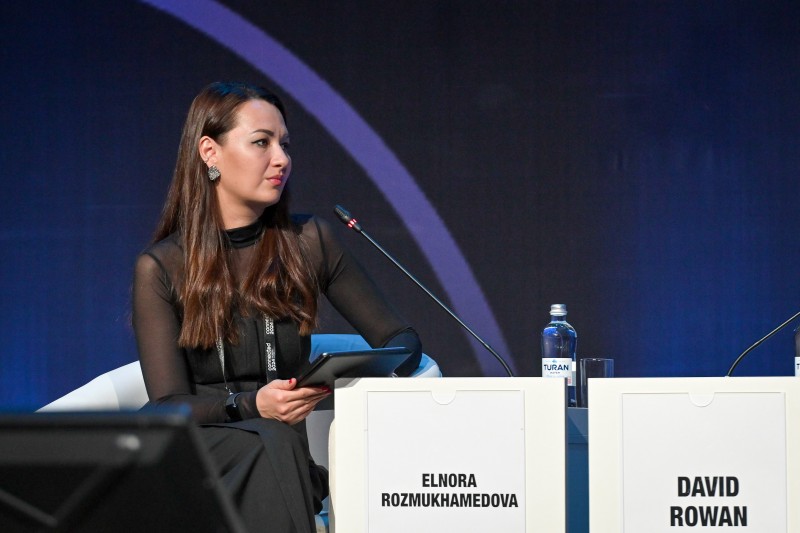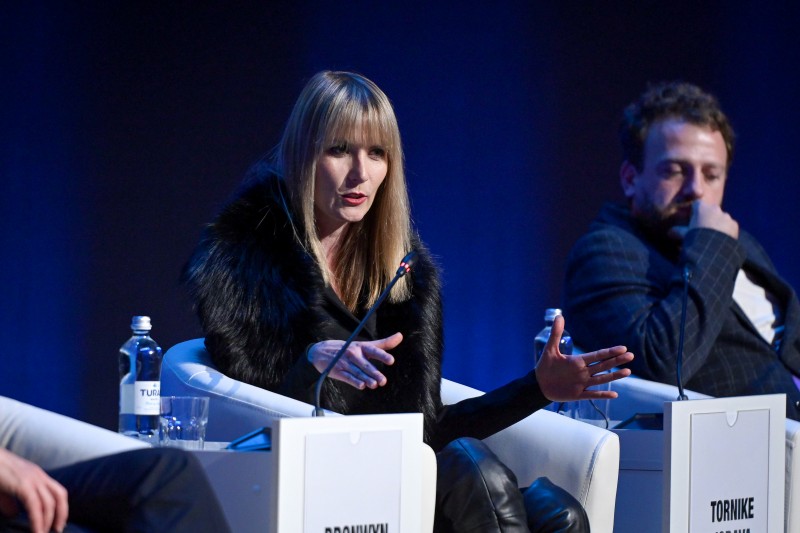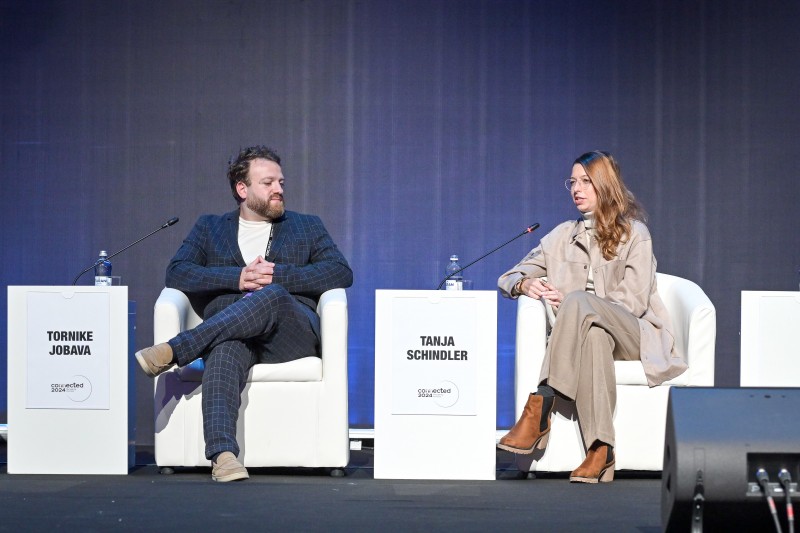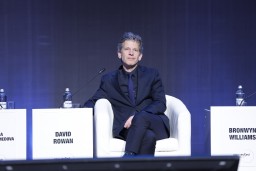Еxperts from around the world discuss bio-digital convergence at CONNECTED-2024
"We need to create a vision of the future in which we want to live": experts from around the world discuss bio-digital convergence at CONNECTED-2024
The international conference CONNECTED is taking place in the capital of Kazakhstan, providing a discussion platform for exploring global narratives and conceptualizing the vision of the future.
In the modern world, there is a rapid merging of biological systems and digital technologies, known as bio-digital convergence. This phenomenon represents not just a technological trend, but a profound transformation of our understanding of ourselves and the surrounding reality, opening new horizons for improving health, enhancing cognitive abilities, and overcoming physical limitations. What are the main challenges and opportunities arising from this convergence, and how can it change humanity's perception of itself and its place in the world? Experts of global scale were looking for answers to these questions during the panel session "Tech x Human Synergy: Bio-Digital Convergence."

The plenary session was moderated by Elnora Rozmukhamedova, Founder and CEO of ER10 Media (Kazakhstan). Speakers discussed the synergy between technology and various aspects of our daily lives, exploring how technology can change, transform, enhance, or diminish our lives.
As noted by journalist, bestselling author, investor, and technology guru David Rowan, the Artificial Intelligence has already become our reality, and we must build a vision of the future with this reality in mind.
"We are processing vast amounts of data. We have a kind of “advanced brain”, and we have large language models. We are beginning to apply elements of AI in the production of pharmaceuticals, materials with negative carbon emissions, and using AI when we create videos and photos. But this does not occur in isolation. There is convergence, for example, with how the human body and genome work. Thanks to this convergence, our capabilities have reached the point of using technologies within the human body. We are in the early stages of creating a common interface between the brain and computer, attempting to translate our thoughts through sensors or implants to help people communicate with each other", the speaker explained.
He presented the interaction between human intelligence and AI as working with natural processes to solve humanity's problems.

Futurist, trend analyst, economist, and UNDP futures fellow Bronwyn Williams pointed out a problem that arises for humans and will never arise for artificial intelligence.
“When we talk about the synergy between technology and humanity, we need to consider our instinctive fear of change. We are trying to use technology to eliminate surprises rather than to enhance our capabilities. Moreover, capabilities are always associated with risk and uncertainty. We try to predict the future, to find the right answers. But singularities inevitably come into play, and the future appears as a kind of bubble of surprises into which we are trying to enter. No book can provide an answer to how well you can prepare for or avoid uncertainty. The path to the future is a journey that seems maximally unpredictable and minimally controllable. Here, we encounter a space filled with fear of thinking. We must remember that we will always try to change something and will always live in an environment that continues to surprise us. Therefore, we need to “pump the muscles of anticipation”, overcoming fear to think more productively,” said Bronwyn Williams.

Tornike Jobava, Deputy Chairman of GITA – the Georgia’s Innovation and Technology Agency, shared his vision of how the technological trend overlaps with the preservation of identity, culture, and traditions.
“When you strongly associate with traditionalism, no one will say that you are a country that also develops innovations. But that does not mean renouncing traditional values. In Georgia, we are currently creating digital hubs, physical spaces for innovation. It is undoubtedly very important to have physical infrastructure, but the community is the most crucial aspect. As futurists, we must prepare our country and our people for future changes. Responsibility is what we need to focus on more than technology. Because technology is, of course, more dangerous compared to humans. But the most dangerous is a person with technology who lacks responsibility,” noted Tornike Jobava.
Tanja Shindler, President of the Association of Professional Futurists (APF), Foresight Advisor to the EU Comission also spoke about responsibility.
“First of all, we need to think about what we call future responsibility. What should the future we want to create look like, and then use advanced technologies from an ethical point of view. When I prepared for this conference, someone said that we shouldn’t be afraid of AI becoming too human-like. Yes, the human dimension, if you will, the human touch, is irreplaceable. But there is another issue here. We have biases. Unfortunately, these biases are already infiltrating Artificial Intelligence. The world will become worse if we extrapolate our current status into the future. We need to stop thinking based only on past data. Foresight is the attempt to program new data by looking at trends and signals that will allow us to move into the future. This is the reason to move forward. It is another force that we need to mobilize. We need to create a vision of the future in which we want to live”, emphasized the speaker.
Top of Form
Bottom of Form
To note, approximately 1,500 delegates from over 20 countries are participating in the conference. The platform brings together global agents of change and aims to form a unified, synchronized vision of the future.
The event includes 18 panel sessions featuring more than 70 international speakers from the USA, UK, Germany, Switzerland, Netherlands, Spain, Italy, Poland, Finland, Croatia, Bulgaria, Estonia, Georgia, China, South Korea, Singapore, Indonesia, Israel, Turkey, UAE, South Africa, Nepal, and Uzbekistan.
The uniqueness of the CONNECTED conference lies in its worldview approach to discussing global issues. The organizers encourage looking into the future through the lens of cultural and philosophical perspectives, technologies and innovations, and interactions with nature.
The event is being held in an Open Mind format. This consciousness model promotes impartial evaluation, open communication, and flexibility of views - the readiness of all participants to embrace diverse perspectives. This fosters a more thorough analysis of topics, fruitful dialogue, and collaborative searching for both answers to contemporary challenges and innovative solutions in shaping the future vision of the world.
The general sponsor of the CONNECTED conference is AITAS - the leading agro-industrial holding in the country.
CONTACTS FOR MEDIA:
+7 771 083 5035
+7 778 577 3866
+7 701 216 88 62
E-mail: media@connected.kz
